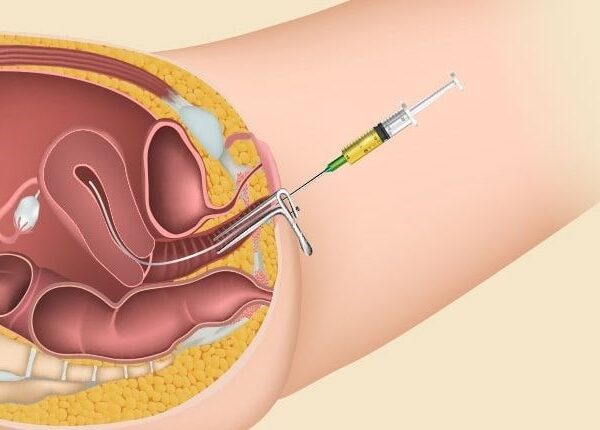Addiction is a tough problem that affects many people. Overcoming it can take time and effort. A rehab centre in Delhi often provides counseling, medicine, or support groups to aid recovery. Another helpful way to heal is through art therapy.
Art therapy uses creative activities to help people feel better mentally, emotionally, and physically. Let’s look at how art therapy works and why it can be so helpful.
What Is Art Therapy?
Art therapy involves doing creative things like painting, drawing, writing, or sculpting. It is guided by trained therapists who help people express their feelings, handle stress, and deal with tough experiences.
You don’t need to be an artist to try art therapy. The focus isn’t on how good your art looks. It’s about using art to share your emotions and heal.
How Art Therapy Helps with Addiction Recovery
1. Lets You Show Your Feelings
Addiction often happens because of emotions like sadness, guilt, or anger. Many people find it hard to talk about these feelings. Art therapy gives them a safe way to express themselves without using words.
For example, drawing or painting can help show hidden emotions or fears. This makes it easier to understand and deal with them.
2. Lowers Stress and Anxiety
Stress and anxiety are big reasons people turn to drugs or alcohol. Creating art can calm your mind and make you feel more relaxed. Activities like coloring or shaping clay help you focus and stop worrying about negative thoughts.
3. Boosts Confidence
Addiction often makes people feel weak or hopeless. Completing an art project, even a small one, can make you feel proud of yourself.
Art also reminds you of your talents and strengths, which helps you believe in your ability to recover.
4. Teaches Better Ways to Cope
Many people use substances to escape tough emotions. Art therapy shows healthier ways to handle feelings like sadness or anger. For example, painting can help you let go of frustration, and writing can help you process your day.
5. Focuses on the Present Moment
Art therapy helps you stay in the present moment. When you’re busy creating something, your mind doesn’t worry about the past or stress about the future.
6. Improves Communication
Addiction can hurt relationships and make it hard to talk with others. Art therapy helps you open up and share your thoughts, either through your art or by talking about it with others.
How Does Art Therapy Work?
1. One-on-One Sessions
In private sessions, a therapist works with you on specific art projects. These sessions are made to match your personal needs and goals.
2. Group Sessions
Group art therapy allows people to create art together and share their experiences. This helps build a sense of community and reduces loneliness.
3. Open Activities
Sometimes, therapists let you create whatever you want. This helps you express yourself freely.
4. Theme-Based Projects
Therapists may suggest themes like “hope” or “strength.” These themes help you focus on positive parts of your recovery.
Different Types of Art Used in Therapy
Art therapy is not just about drawing or painting. Here are other ways it helps:
1. Painting and Drawing
These are great ways to express your feelings through colors and shapes.
2. Collages
Making collages from old magazines or newspapers lets you visually show your emotions.
3. Sculpture
Working with clay or other materials helps release feelings like anger or sadness.
4. Writing and Journaling
Writing poems, stories, or reflections allows you to process your thoughts.
5. Music and Dance
Though different from visual art, music and dance are also helpful in healing and can complement art therapy.
How Art Therapy Affects the Brain
Science shows that art therapy can change how the brain works. Here’s how:
1. Makes You Feel Good
Creating art releases dopamine, which is a chemical in your brain that makes you feel happy. This is especially helpful for people recovering from addiction.
2. Reduces Stress
Doing creative activities lowers cortisol, a hormone that causes stress. This makes you feel more relaxed and less anxious.
3. Helps the Brain Grow
Art therapy helps the brain form new pathways. This makes it easier to think positively and develop healthy habits.
Real Stories of Art Therapy Success
1. Sarah’s Story
Sarah struggled with alcohol addiction. Through painting, she expressed her pain and began to heal. Over time, her artwork became brighter and full of hope. Art therapy helped her believe in herself again.
2. John’s Journey
John had a hard time dealing with loss and turned to drugs. Through sculpting, he found a way to let out his emotions. Art therapy gave him strength to face his feelings and move forward.
Art Therapy and Other Treatments
Art therapy works best when combined with:
- Counseling: To talk about deep emotional issues.
- Medicines: To manage cravings or withdrawal.
- Support Groups: To share experiences and find support.
Together, these methods provide a complete path to recovery.
Common Myths About Art Therapy
1. “I’m Not Good at Art.”
You don’t need to be talented in art. The goal is to express yourself, not to create perfect art.
2. “Art Therapy Can’t Fix Addiction.”
While it’s not a cure by itself, art therapy helps in emotional healing and finding new coping tools.
3. “It’s Only for Kids.”
Art therapy works for all ages. Adults find it just as helpful as children.
How to Start Art Therapy
If you want to try art therapy:
- Find a Therapist: Look for someone trained in art therapy and addiction recovery.
- Join a Program: Many rehab centers offer art therapy.
- Try It at Home: Simple activities like coloring or journaling can be a good start.
Why Art Therapy Is Special for Addiction Recovery
Art therapy is a unique and creative way to fight addiction. It helps people express emotions, handle stress, and feel more hopeful. A rehab centre in noida often incorporates art therapy as part of its holistic approach to recovery.
Whether you enjoy painting, writing, or sculpting, art therapy can help you heal in a safe and supportive environment. If you or someone you know is struggling with addiction, consider giving art therapy a try. It might be the key to finding strength and peace on the road to recovery.





